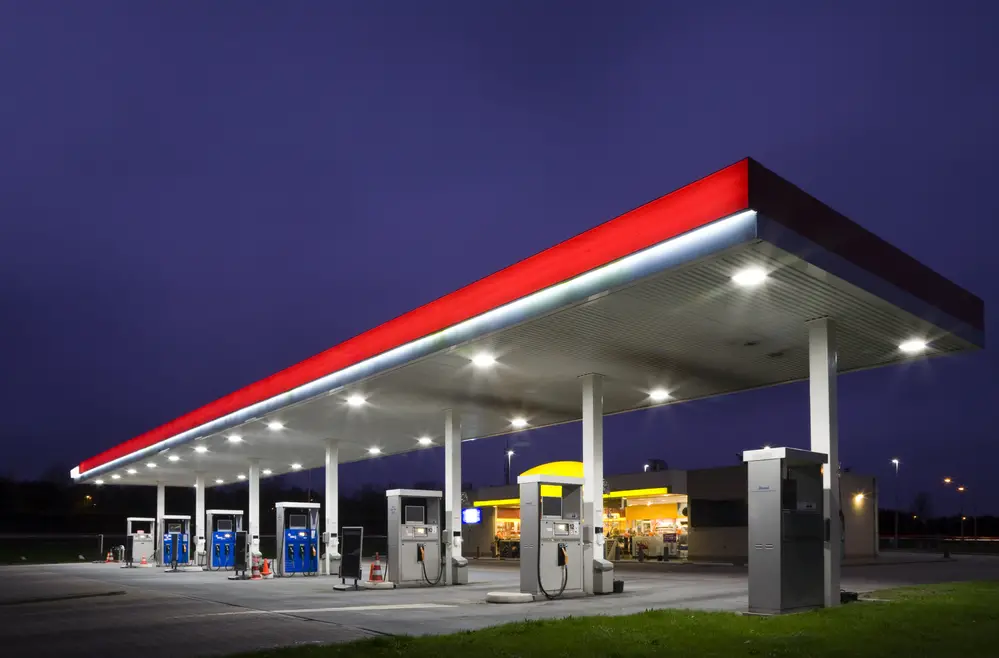Gas stations are a common sight in most neighborhoods, but is it safe to live near a gas station?
While gas stations can be convenient, they also come with potential risks and hazards.
Understanding the potential risks and taking steps to mitigate them can help you make an informed decision about where to live.
Key Takeaways
- Living near a gas station can pose health risks due to harmful vapors and chemicals emitted by gasoline.
- Gasoline vapors can also contaminate the soil and groundwater, which can have long-lasting effects on the environment.
- When considering living near a gas station, it is important to weigh the pros and cons carefully and consider your individual needs and priorities.
FOUR Potential Health Hazards of Living Near a Gas Station
Living near a gas station can pose several potential health hazards.
These hazards can vary depending on factors such as the age of the gas station, the type of fuel being sold, and the proximity of your home to the gas station.
In this section, we will discuss some of the potential health hazards associated with living near a gas station.
1. Air Quality Concerns
Gas stations can contribute to air pollution by releasing volatile organic compounds (VOCs), and other harmful pollutants into the air.
These pollutants can include benzene, toluene, and other carcinogens.
According to the World Health Organization, exposure to air pollution can cause a range of health problems, including respiratory infections, heart disease, and lung cancer.
Ground-level ozone is another air quality concern associated with gasoline fumes.
Ground-level ozone is created when nitrogen oxides and volatile organic compounds react in the presence of sunlight.
Exposure to ground-level ozone can cause respiratory problems, such as coughing and shortness of breath.
2. Water Contamination Risks
Gas stations have the potential to contaminate nearby drinking water sources.
Leaking underground storage tanks, spills, and other accidents can release gasoline and other harmful chemicals into the ground, which can then seep into nearby groundwater sources.
Exposure to these contaminants can cause a range of health problems, including kidney damage, cancer, and other adverse health effects.
3. Chemical Exposure
Exposure to harmful chemicals such as benzene, toluene, and other solvents can have serious health consequences.
According to the National Library of Medicine, repeated high exposure to gasoline, whether in liquid or vapor form, can cause lung, brain, and kidney damage.
Gasoline additives such as methyl tertiary-butyl ether (MTBE) and lead products can also pose health risks.
4. Health Effects on Children
Children are particularly vulnerable to the health hazards associated with living near a gas station.
Exposure to benzene emissions, which are known to be a cancer-causing chemical, can increase the risk of leukemia and other cancers in children.
Exposure to hydrocarbon fumes from gasoline and diesel fuel can also cause respiratory problems in children.
To protect public health and safety, the U.S. Environmental Protection Agency (EPA) has established regulations to limit the amount of pollutants that gas stations can release into the environment.
However, leaks, spills, and other accidents can still occur, posing risks to nearby residents.
Living Near Gas Stations: Pros and Cons
If you are considering living near a gas station, there are several factors to consider. Here are some advantages and disadvantages to help you make an informed decision.
1. Advantages
Living near a gas station can have some advantages.
For instance, homes that are located near gas stations are often cheaper than those that are farther away.
This can be especially helpful for homeowners who are looking for an affordable place to live.
Another advantage of living near a gas station is that you can save time and money on gas.
You won’t have to drive far to fill up your tank, and you may be able to take advantage of loyalty programs or discounts that are offered by the gas station.
2. Disadvantages
There are several disadvantages to living near a gas station.
One of the biggest concerns is the potential health hazards that come with exposure to gasoline and other chemicals.
According to Scientific American, gas stations can leak hazardous vapors into the surrounding environment, which can lead to serious health problems such as low birth weight and respiratory issues.
Another disadvantage of living near a gas station is the noise and traffic that can come with it.
Gas stations can be busy places, and the constant noise and traffic can be disruptive to your quality of life.
Additionally, living near a gas station can have a negative impact on your property values. According to a study published in the Journal of Environmental Health Perspectives, living near a gas station can decrease your property values by up to 15%.
Conclusion
In summary, the decision to live near a gas station ultimately depends on individual circumstances and priorities. While there are potential health and environmental risks associated with living close to gas stations, there may also be economic benefits to consider. It is important to weigh the pros and cons and make an informed decision based on your specific situation.

